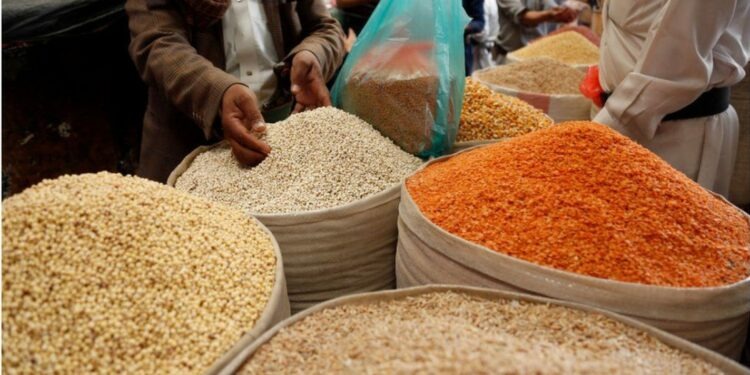In a significant move to address the surging inflation that has plunged many Nigerians into poverty, the Federal Government has announced a 150-day duty-free import window for specific food commodities.
This initiative, disclosed on Monday, is part of broader efforts to mitigate the high cost of food and improve national food security.
The Minister of Agriculture and Food Security, Abubakar Kyari, revealed during a press conference in Abuja that the government is suspending duties, tariffs, and taxes for the importation of maize, husked brown rice, wheat, and cowpeas. This suspension applies to imports through both land and sea borders.
“The government has taken a raft of measures to be implemented over the next 180 days to ameliorate food inflation in the country caused by affordability and exacerbated by availability,” Kyari stated.
This initiative is part of the Presidential Accelerated Stabilisation and Advancement Plan, an ambitious project spearheaded by President Bola Tinubu to enhance food security and stabilize the economy. The Federal Government plans to import 250,000 metric tonnes of wheat and 250,000 metric tonnes of maize. These commodities, in their semi-processed state, will be supplied to small-scale processors and millers across the country.
“The imported food commodities in their semi-processed state will target supplies to the small-scale processors and millers across the country,” Kyari added.
The new directive is also expected to reduce the demand for foreign exchange (forex) by food importers. In 2023, Nigeria spent $2.13 billion on food imports, a significant drain on the country’s forex reserves. The Central Bank of Nigeria’s quarterly statistics highlighted the paradox of Nigeria, often described as the food basket of Africa, being a major importer of food.
Despite Nigeria’s vast agricultural potential, the sector faces numerous challenges, including inadequate infrastructure, insecurity, and climate change. These issues have hindered efforts to boost local production and reduce reliance on food imports. The high food import bill remains a concern for the government, which has been striving to enhance domestic agricultural output.
While the duty-free import window aims to alleviate immediate food shortages and inflation, experts argue that it underscores the government’s struggle to achieve long-term food security. Critics suggest that the move contradicts earlier strategies that focused on boosting local production and reducing food imports.
The Nigerian government had previously ruled out food importation as a strategy to tackle high food prices and economic hardship. The latest directive has raised questions about the country’s commitment to eradicating hunger by 2030, a goal outlined in the United Nations Sustainable Development Goals.
In addition to the import initiative, the government expressed its intention to collaborate with state governments to expand land cultivation nationwide. This collaboration aims to increase local food production and reduce dependency on imports.
For more news https://naija102.com/lagos/blog/







